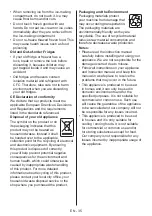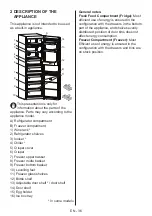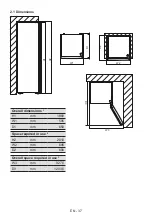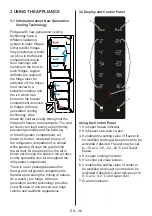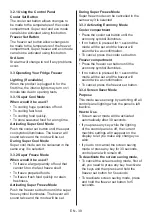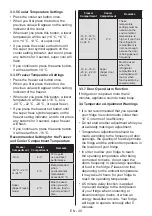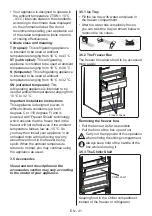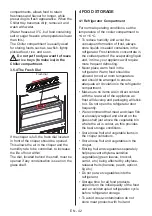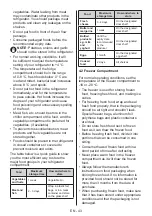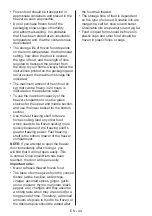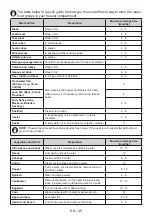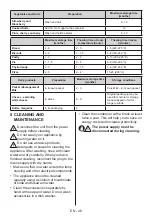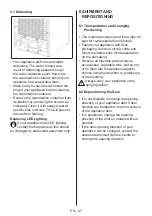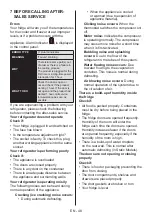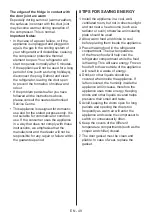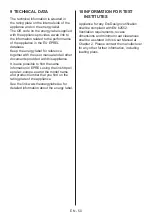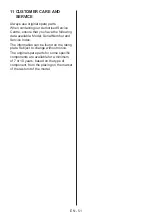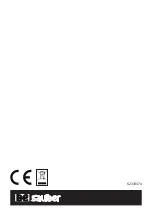
EN - 48
7 BEFORE CALLING AFTER-
SALES SERVICE
Errors
Your fridge will warn you if the temperatures
for the cooler and freezer are at improper
levels or if a problem occurs with the
appliance. Alarm indicator ( ) is displayed
in the control panel.
ERROR TYPE
( ! )
Alarm indicator
MEANING
"Failure" Warning
WHY
There is/are some part(s) out
of order or there is a failure in
the cooling process.
The product is plugged for the
first time or a long-time power
interruption for 1 hour.
WHAT TO DO
Check the door is open or
not and check if the product
working 1 hour. If the door is
not open and the product had
worked 1 hour, call service
for assistance as soon as
possible.
If you are experiencing a problem with your
refrigerator, please check the following
before contacting the after-sales service.
Your refrigerator does not operate
Check if:
•
Your fridge is plugged in and switched on
•
The fuse has blown
•
Is the temperature adjustment right?
•
The socket is faulty. To check this, plug
another working appliance into the same
socket.
Your refrigerator is performing poorly
Check if:
•
The appliance is overloaded
•
The doors are closed properly
•
There is any dust on the condenser
•
There is an adequate distance between
the appliance and surrounding walls
Your refrigerator is operating noisily
The following noises can be heard during
normal operation of the appliance.
Cracking (ice cracking) noise occurs:
•
During automatic defrosting.
•
When the appliance is cooled
or warmed (due to expansion of
appliance material).
Clicking noise occurs:
When the
thermostat switches the compressor on/
off.
Motor noise:
Indicates the compressor
is operating normally. The compressor
may cause more noise for a short time
when it is first activated.
Bubbling noise and splashing
occurs:
Due to the flow of the
refrigerant in the tubes of the system.
Water flowing noise occurs:
Due
to water flowing to the evaporation
container. This noise is normal during
defrosting.
Air blowing noise occurs:
During
normal operation of the system due to
the circulation of air.
There is a build-up of humidity inside
the fridge
Check if:
•
All food is packed properly. Containers
must be dry before being placed in the
fridge.
•
The fridge doors are opened frequently.
Humidity of the room will enter the
fridge each time the doors are opened.
Humidity increases faster if the doors
are opened frequently, especially if the
humidity of the room is high.
•
There is a build-up of water droplets
on the rear wall. This is normal after
automatic defrosting (in Static Models).
The doors are not opening or closing
properly
Check if:
•
There is food or packaging preventing the
door from closing
•
The door compartments, shelves and
drawers are placed properly
•
The door gaskets are broken or torn
•
Your fridge is level.
Summary of Contents for 1-185B Series
Page 1: ......
Page 52: ...52333474 ...


